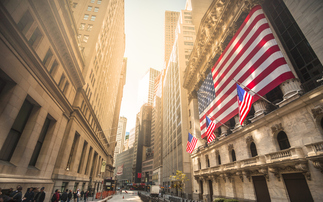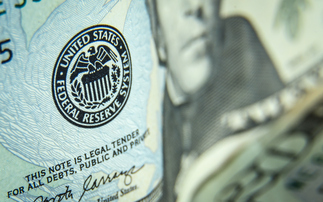In the first of a special three-part Big Question, fund managers give their views on whether President Trump can deliver on his campaign promises, and what this will mean for markets.
Ian Williams, chairman and CEO at Charteris Treasury Portfolio Managers
Wider factors
The so-called reflation trade following the US election has been driven by several factors not directly related to President Trump's victory and will continue to influence global financial markets in 2017.
The first factor is that the 30-year bull market in bonds, which pushed yields to an all-time low, has come to an end. Our proprietary long-cycle trend analysis highlighted the onset of a bear market in bonds in early 2016.
Bond yields worldwide peaked in August 2016 amid continually slow but steady US economic recovery, an uptick in commodity prices led by precious metals and a growing realisation the US interest rate cycle had turned.
Charteris' Williams: How silver exposure led us to the top of IA universe this year
These expectations have hardened since the US election due to rising inflation expectations and a potentially large US fiscal stimulus.
Equity prices have also benefitted from renewed optimism about corporate profits (including a possible lowering in tax rates) and a relatively strong final quarter of 2016.
While US shares seem overbought over the short term and are not cheap compared with other major markets, on a two-year view they remain attractive relative to bonds.
Nick Ford, manager of the CF Miton US Opportunities fund
Not optimistic enough
Investors are not optimistic enough about the impact of a Trump presidency. Stocks have barely risen since August last year, with the S&P 500 up a mere 3.7%.
It seems there is considerable doubt that many of President Trump's proposals will be enacted despite Republican control of Congress. But it would be very unusual for Republican Congressmen to block business-friendly legislation.
A key proposal, which we think will have strong support, is allowing businesses to fully expense capital outlays in the year of purchase.
This should create a boom for corporate investing in new plants and machinery - something which has been notably absent in the economic recovery so far.
A pick-up in productivity and accelerating GDP growth should follow. Up to now, the market's rise has been primarily driven by falling interest rates.
Better-than-expected corporate earnings growth should lead stocks higher from here, and this month's announcement that US small business optimism had surged the most since 1980 is extremely significant.
Trump's presidency has set the stage for a period of prosperity not seen since the Reagan era.
Valentijn van Nieuwenhuijzen, head of multi-asset strategies at NN Investment Partners
Market assumptions
It might be right to assume the increased uncertainty around US economic and political interaction with the rest of the world justifies higher risk premia in markets.
However, it only holds for the assumption that "all else is equal" compared to yesterday in the world around us. And that is an incredible assumption to make. Other political and economic developments are currently unfolding that could increase, decrease or disperse the behaviour of US policymakers.
Most importantly, the market will never neglect what is happening to the global business cycle, inflation, corporate profits and defaults. On this front, news improved substantially while headlines were full of political drama.
Global growth is stronger, unemployment rates are lower almost everywhere, inflation and wages are finally going up, and the corporate outlook for earnings growth has brightened.
To some extent, one could argue the recent consolidation in markets is already a reflection of higher political risk premia, because, on the back of the direction of economic fundamentals, risky assets deserve to drift higher.













